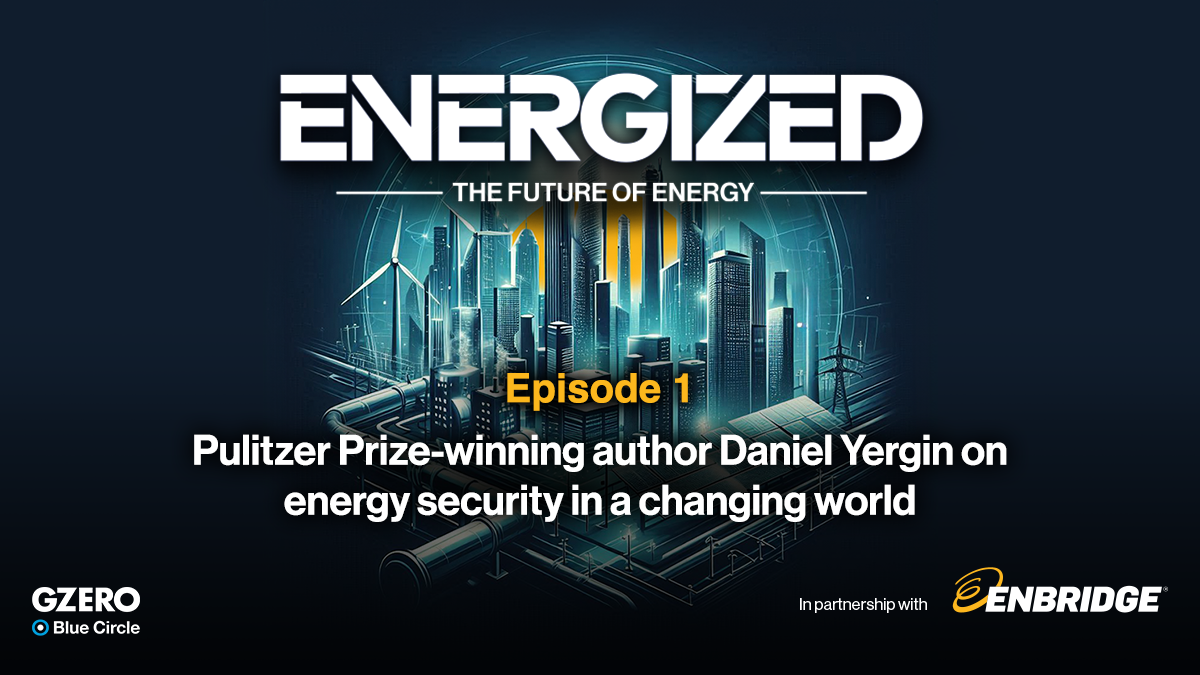Pulitzer Prize-winning author Daniel Yergin on energy security in a changing world
Listen: Whoever controls the energy controls the power. But what happens when the resources needed to create that energy change? In this episode of "Energized: The Future of Energy”, host JJ Ramberg and Enbridge CEO Greg Ebel talk to Daniel Yergin, Vice Chairman of S&P Global and author of The New Map: Energy, Climate & the Clash of Nations. They discuss the relationship between energy and geopolitics, how changes in energy resources impact the relationships between global superpowers, and the most effective ways to bring along developing nations as we move further down the path to energy transition.
“Energized: The Future of Energy” is a new five-part podcast series from GZERO Media's Blue Circle Studios and Enbridge, exploring the biggest ideas about the current energy transition and how it will impact geopolitics, the economy, and your bottom line.
Catch up on other episodes of Energized: The Future of Energy below — or listen on Apple, Spotify, Goodpods, or wherever you get your podcasts.
- Introducing “Energized: The Future of Energy”, a new podcast series ›
- Energized: The Future of Energy - GZERO Media ›
- Can we keep energy affordable, safe, and secure? - GZERO Media ›
- From AI to Food Recycling: Innovations transforming the Energy Sector - GZERO Media ›
- Partnering for the future: Indigenous communities and energy transition - GZERO Media ›
- What role does natural gas play in a clean energy transition? - GZERO Media ›
- International markets and global energy transitions - GZERO Media ›
